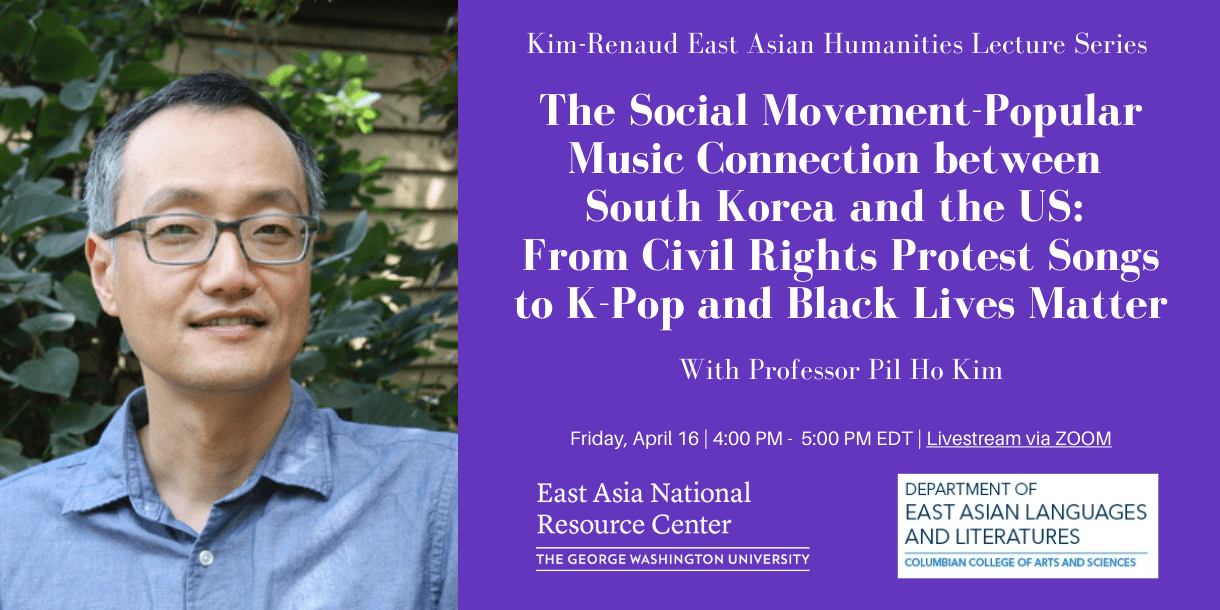Friday, April 16th, 2021
4:00pm – 5:00pm EDT
Livestream via Zoom
About the Event
The long-standing political and cultural relationship between South Korea and the US has often generated unexpected benefits to social activism for the oppressed in both countries. In this talk, I will first go back to the twentieth-century history and focus on the role that American civil rights anthems and modern folk songs played in the development of the protest song movement against the military dictatorship in South Korea. Then I will bring the story to the present by discussing how K-Pop’s explosive global fandom has allowed its leaders to champion various social causes, including recent anti- racist activism in the US. Finally, I will present a recorded conversation by a group of undergraduate and graduate students at the Ohio State University in the autumn 2020, sharing their first-hand experiences and opinions with respect to K-Pop and social activism in the contemporary moment.
This event is co-sponsored by the Department of East Asian Languages and Literatures and the East Asia National Resource Center at the George Washington University as part of the Kim-Renaud East Asian Humanities Lectures Series
Speaker
Pil Ho Kim
Assistant Professor, East Asian Languages and Literatures, the Ohio State University
Speaker

Pil Ho Kim is an assistant professor of Korean at the Department of East Asian Languages and Literatures, the Ohio State University. A sociologist by training, he has been studying and teaching a wide range of topics related to modern Korea, including popular music, cinema, literature, and urban regeneration/gentrification. He is currently working on a monograph tentatively entitled, Gangnam: Global/Polarization of South Korea’s Dreamland, which casts a new light on the global rise of South Korean economy and popular culture by focusing on its geographic symbol, Gangnam. He has published research articles in positions: east asia cultures critique, Journal of Japanese and Asian Cinema, The Asia-Pacific Journal, Korea Observer, and Acta Koreana, among others.


